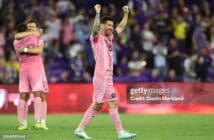FIFA’s well intentioned attempt to extend the global brand into new territories has already stumbled in the face of the abject totalitarianism and homophobia of the Qatari state, host to the 2022 World Cup.

Many photos of Tymoshenkos bruised body began to appear last week
The oft quoted caveat is that there is still time for Qatar to change.
Russia hosts the World Cup in 2018 but that too is a country without a free and unencumbered press and where elections are widely believed to be fraudulent.
Of greater concern is that large parts of the local economy are reckoned to be under the sway of the Russian mafia.
Those are FIFA’s problems but any Euro-arrogance on UEFA’s behalf is now becoming severely tempered by the latest news flowing out of the Ukraine, the former Sovier Republic which along with Poland, is set to be co-host of EURO2012.
There is a growing concern in European capitals about the continued imprisonment of former opposition leader Yulia Tymoshenko.
Tymoshenko was instrumental in the Orange Revolution of 2004/5, which took place after the Russian backed candidate Viktor Yanukovych was declared the winner of e Presidential run-off. The results were believed to have been rigged and protestors filled central Kiev, clad in the orange of the party of Tymoshenko and their candidate Viktor Yushchenko.
Eventually, the courts declared Yushchenko the winner and the revolution was a success.
By 2010, Ms Tymoshenko led her party and once more Yanukovych was the opponent. He won although the results’ fairness were again challenged.
The challenge was dropped when Tymoshenko lost faith in the court. and European election monitors called the election honest and fair, making it harder for Tymoshenko to gather global support for her challenge
Once in power Yankovych sought to destroy Tymoshenko and in 2010, she faced a series of court trials for criminal activity relating to an oil pipeline deal with Russia. Her party is the more pro-western and less pro-Russian of the two in the Ukraine. Critics saw the court system being abused to punish political opponents, a tactic widely used in Putin’s Russia.
On 11 October 2011, a Ukrainian court sentenced Tymoshenko to seven years in prison after she was found guilty of abuse of office and tax evasion. The world community complained but by and large, the Ukrainian government continued as normal without political sanction.
However last week photographs emerged of Tymoshenko with bruises on her body, and with the continent’s attention turning to EURO2012, suddenly Ukraine’s big propaganda opportunity started to fall to pieces.
According to the BBC, European Union Commission President Jose Manuel Barroso and Justice Commissioner Viviane Reding will boycott the tournament in Ukraine. Reding, said she would boycott Ukraine’s opening ceremony for Euro 2012 because “you cannot close your eyes on human rights, even during a great sporting celebration”.
Worse still, German Chancellor Angela Merkel, Europe’s most influential politician may do so too. A spokesman said any visit from her would depend on Ms Tymoshenko’s fate. The presidents of Austria, the Czech Republic, Germany, Italy and Slovenia are boycotting a political summit next month in Yalta, Ukraine.
The issue came to the fore last week when EU foreign affairs chief Lady Catherine Ashton said there had been confirmation from the Ukrainian ombudsperson’s office that Tymoshenko had been “subjected to physical violence during the transfer from her cell to a hospital on 20 April”.
April 20th is a sensitive day for much of Europe, as it is still celebrated by neo Nazis as Adolf Hitler’s birthday. It is a reminder of the dangers of dictatorship and the value of freedom.
Ms Tymoshenko was by then on hunger strike and her daughter claimed to have seen bruises. As if Chancellor Merckel’s stance isn’t troubling enough, Germany has a figure of even greater stature in these matters.

President Gauck has personal experience of Soviet style repression
In Germany, the President is the head of state like the Queen in Canada and the Chancellor Merckel, the head of government like Stephen Harper.
Usually the German President eschews politics but the current incumbent Joachim Gauck is a former human rights activist who opposed the Communist dictatorship in East Germany.
His father was arrested by the Soviet authorities when he was eleven, never to return.
Suddenly there is a cold war twinge to all this.
The current Ukrainian governing party is close to Russia politically and closer still to Vladimir Putin.
They have hit back.
“We would not like to think that the political leaders of Germany are capable of reviving the methods of the Cold War and making sport a hostage of politics,” Ukrainian foreign affairs spokesman Oleg Voloshin said.
Netherlands, Portugal, Denmark, Germany are all due to play in the city of Kharkiv where Tymoshenko is imprisoned. France, England and Sweden also play in the Ukraine in matches which start on June 9th.
It seems very unlikely that this opportunity to draw attention to Tymoshenko’s incarceration will not be used further, especially as such nations as Sweden, Denmark and the Netherlands where global human rights are taken seriously, begin to take notice.
Should that transpire, the effect will be felt all the way in Moscow where Putin hopes to avoid such scrutiny in the run up to the 2018 World Cup.
![Prost International [PINT]](https://prostinternational.com/wp-content/uploads/2021/08/PINTtFontLogoRoboto1536x78.jpg)


